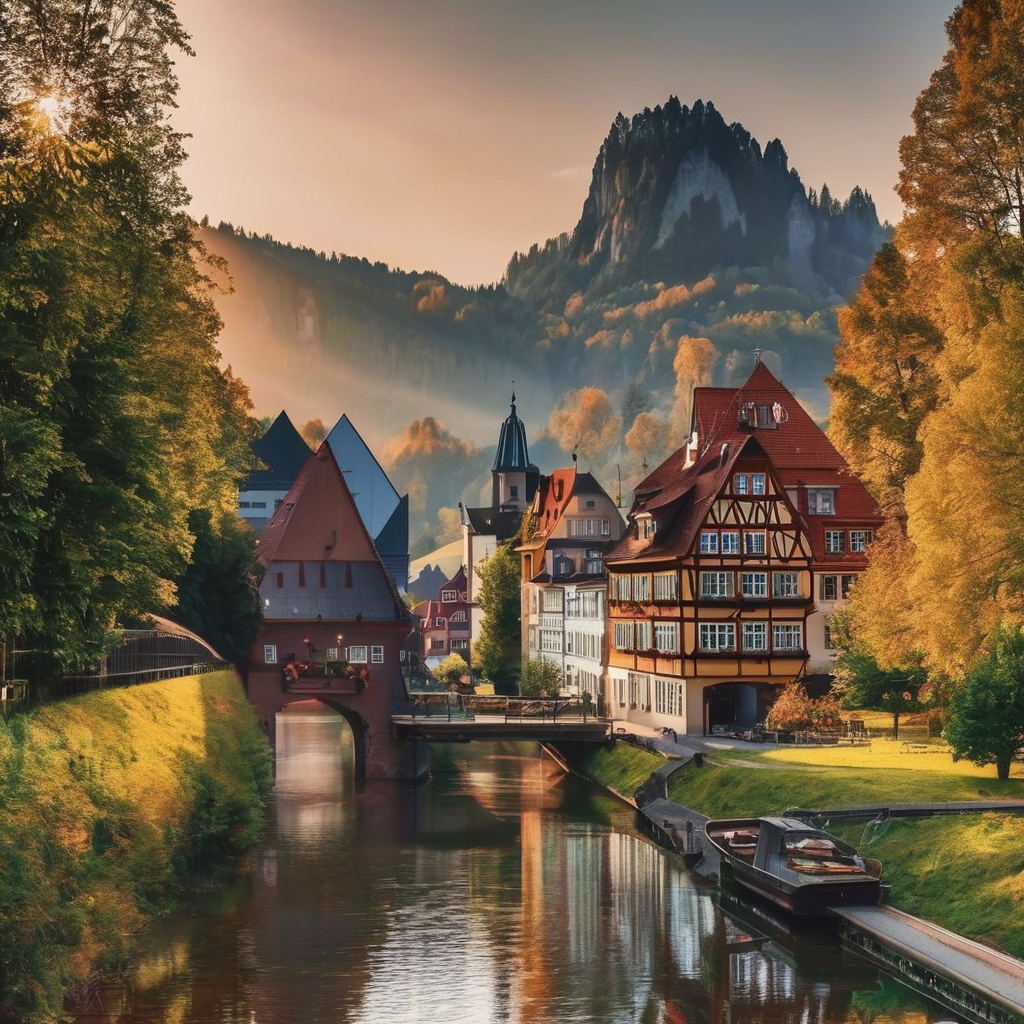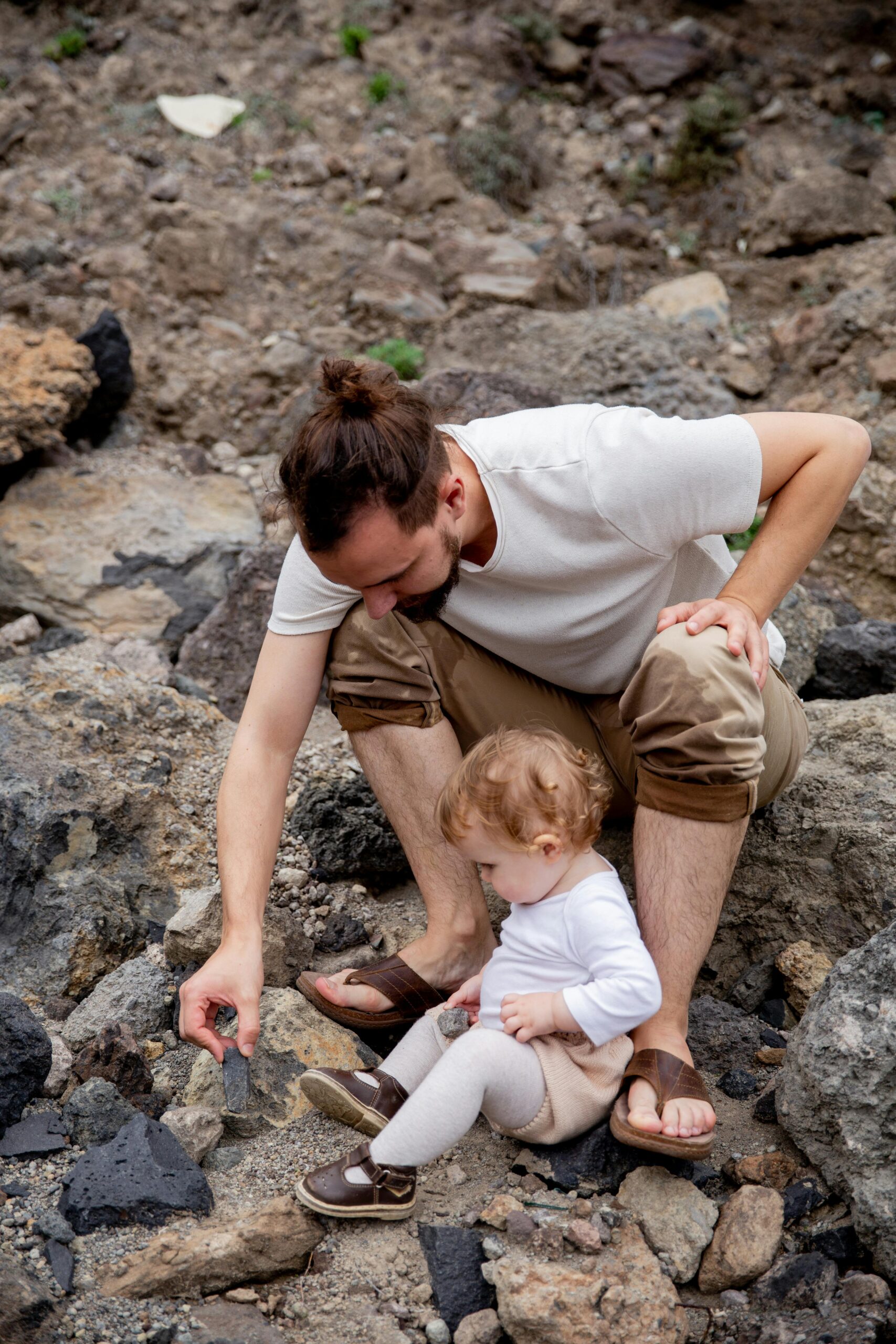1. Introduction to Germany’s Diverse Beauty
Germany, known for its vibrant culture and stunning landscapes, offers travelers an array of experiences. From the modernity of Berlin to the historical charm of the Rhine Valley, the diversity of this country is truly remarkable. This article delves into five captivating locations in Germany, providing a comprehensive guide for anyone looking to explore this beautiful country.
2. Geographical Information
Germany is located in Central Europe, bordered by nine countries and boasting a diverse climate that ranges from the maritime influences in the north to the continental conditions in the south. The best times to visit vary depending on the region, with spring (April to June) and autumn (September to October) generally offering the most pleasant weather.
3. Munich: The Heart of Bavaria
3.1. Cultural Insights
Munich, the capital of Bavaria, is renowned for its rich cultural heritage. The city is a hub of Bavarian traditions, from the famous Oktoberfest to the traditional attire of lederhosen and dirndls. The Bavarian culture is deeply rooted in the city’s festivals, music, and art, offering visitors an authentic experience.
3.2. Must-Visit Attractions
Munich is home to several iconic landmarks. The Marienplatz, with its stunning New Town Hall, is a must-visit for its historic and architectural significance. The Nymphenburg Palace, a magnificent Baroque palace, offers a glimpse into the city’s royal past. The Englischer Garten, one of the largest urban parks in the world, provides a peaceful retreat in the heart of the city, while the Viktualienmarkt is perfect for sampling local delicacies.
3.3. Activities and Experiences
In Munich, experiencing the local beer culture is a must. The city is dotted with traditional beer gardens where visitors can enjoy a refreshing drink while soaking in the atmosphere. Oktoberfest, the world’s largest beer festival, is a highlight of the city’s calendar, attracting millions of visitors. For art enthusiasts, Munich’s numerous museums, such as the Alte Pinakothek and the Museum Brandhorst, offer a wealth of artistic treasures.
3.4. Travel Tips
Munich offers a range of accommodation options, from luxury hotels to budget-friendly hostels. The city’s efficient public transport system makes it easy to navigate, with options including buses, trams, and the U-Bahn. It’s advisable to pack for a variety of weather conditions, as Munich’s climate can be unpredictable.
3.5. Safety and Health Precautions
Munich is generally a safe city, but it’s wise to take precautions during large festivals like Oktoberfest. Healthcare facilities are readily available, and it’s recommended to have travel insurance that covers medical expenses.
3.6. Budget Planning
While Munich can be an expensive destination, there are ways to save. Opt for budget accommodations and explore local markets for affordable dining options. Many of the city’s attractions, such as the Englischer Garten, are free to visit.
3.7. Local Cuisine
Bavarian cuisine is hearty and flavorful. Must-try dishes include Weisswurst (white sausage), pretzels, and Schweinshaxe (pork knuckle). The Viktualienmarkt offers a range of local specialties, and there are numerous restaurants where you can sample traditional Bavarian fare.
4. Berlin: A City of History and Modernity
4.1. Cultural Insights
Berlin, the capital of Germany, is a city steeped in history and vibrant culture. From its pivotal role in World War II to the Cold War, Berlin’s historical significance is profound. Today, the city is a melting pot of cultures and a hub for arts and innovation.
4.2. Must-Visit Attractions
Berlin is home to numerous iconic landmarks, including the Brandenburg Gate, a symbol of German unity, and the remnants of the Berlin Wall, which stand as a poignant reminder of the city’s divided past. Museum Island, a UNESCO World Heritage site, hosts a collection of world-class museums, while the Reichstag Building offers stunning views of the city.
4.3. Activities and Experiences
Berlin’s art scene is diverse, with galleries showcasing everything from classical to contemporary works. The city’s street art, particularly in neighborhoods like Kreuzberg and Friedrichshain, is world-renowned. For history buffs, Berlin offers numerous tours exploring World War II sites and the city’s Cold War history. Berlin’s nightlife is legendary, with a wide range of bars, clubs, and live music venues.
4.4. Travel Tips
Berlin offers a variety of accommodation options, from luxury hotels to affordable hostels. The city’s extensive public transport network, including buses, trams, and the U-Bahn, makes it easy to get around. When visiting historical sites, it’s a good idea to book tickets in advance to avoid long lines.
4.5. Safety and Health Precautions
Berlin is generally safe, but it’s advisable to be cautious in crowded tourist areas. Healthcare services are readily available, and it’s recommended to have travel insurance.
4.6. Budget Planning
Berlin offers plenty of budget-friendly options. Many museums offer free entry on certain days, and the city’s street food scene provides affordable dining options. For accommodation, consider staying in hostels or budget hotels.
4.7. Local Cuisine
Berlin’s food scene is diverse, reflecting the city’s multicultural population. Must-try dishes include Currywurst, a popular street food, and traditional German dishes like Eisbein (pork knuckle). The city’s food markets, such as Markthalle Neun, are great places to sample local and international delicacies.
5. The Romantic Rhine: Castles and Vineyards
5.1. Cultural Insights
The Rhine Valley, often referred to as the “Romantic Rhine,” is a region steeped in history and legends. The area is famous for its medieval castles, charming villages, and picturesque vineyards. The Rhine has inspired countless legends and stories, adding to its allure.
5.2. Must-Visit Attractions
The Rhine Valley is dotted with stunning castles, such as Marksburg Castle, which offers panoramic views of the river. The Lorelei Rock, a steep rock on the bank of the Rhine, is associated with numerous legends. Towns like Rüdesheim am Rhein and Bacharach are known for their historic architecture and scenic beauty.
5.3. Activities and Experiences
A visit to the Rhine Valley is incomplete without a wine tasting tour. The region is renowned for its Riesling wines, and many vineyards offer tours and tastings. A river cruise along the Rhine provides a unique perspective of the area’s beauty. For those who enjoy hiking, the Rheinsteig trail offers breathtaking views of the river and surrounding landscapes.
5.4. Travel Tips
There are various accommodation options along the Rhine, ranging from charming guesthouses to luxury hotels. The best way to explore the region is by car or train, with many scenic routes offering stunning views. Be sure to pack comfortable shoes for walking and hiking.
5.5. Safety and Health Precautions
The Rhine Valley is generally safe, but it’s important to take precautions when hiking or engaging in outdoor activities. Healthcare facilities are available in the larger towns, but it’s advisable to have travel insurance.
5.6. Budget Planning
The Rhine Valley can be explored on a budget by staying in guesthouses or booking accommodation in advance. Many of the region’s attractions, such as the castles, have affordable entry fees, and there are plenty of budget-friendly dining options.
5.7. Local Cuisine
The Rhine region is known for its hearty cuisine and excellent wines. Must-try dishes include Sauerbraten (pot roast) and Flammkuchen (a type of flatbread). The local wine festivals are a great opportunity to sample the region’s wines and traditional foods.
6. The Black Forest: Nature’s Paradise
6.1. Cultural Insights
The Black Forest, or Schwarzwald, is a region rich in folklore and tradition. Known for its dense forests, quaint villages, and cuckoo clocks, the area is steeped in a mystical aura. Traditional crafts, such as glassblowing and wood carving, are still practiced in the region.
6.2. Must-Visit Attractions
The Black Forest is home to several natural and cultural attractions. The Triberg Waterfalls, one of Germany’s highest waterfalls, is a popular tourist spot. The Schwarzwaldhochstrasse offers stunning views of the surrounding landscapes. The Black Forest Open Air Museum provides insights into the region’s rural life, while Freiburg im Breisgau is known for its medieval architecture and vibrant culture.
6.3. Activities and Experiences
The Black Forest is a paradise for outdoor enthusiasts. The region offers numerous hiking and biking trails, as well as opportunities for winter sports. Visiting traditional Black Forest farms and participating in local festivals are also popular activities.
6.4. Travel Tips
Accommodation options in the Black Forest range from rustic lodges to luxury resorts. Renting a car is the best way to explore the region, as it allows for flexibility in visiting the various attractions. Packing for outdoor activities, including hiking boots and weather-appropriate clothing, is essential.
6.5. Safety and Health Precautions
While the Black Forest is generally safe, it’s important to be prepared for outdoor activities. Make sure to inform someone of your plans when hiking and carry a basic first aid kit. Health facilities are available in the larger towns.
6.6. Budget Planning
The Black Forest offers a range of accommodation and dining options to suit different budgets. Many of the region’s attractions, such as the hiking trails and natural sites, are free to visit, making it an affordable destination.
6.7. Local Cuisine
The Black Forest is famous for its hearty cuisine and delicious desserts. The Black Forest cake, a chocolate sponge cake with cherries and whipped cream, is a must-try. Traditional dishes include Schwarzwälder Schinken (Black Forest ham) and Kartoffelsalat (potato salad).
7. Hamburg: The Maritime Metropolis
7.1. Cultural Insights
Hamburg, Germany’s second-largest city, has a rich maritime history. The city’s port, one of the largest in Europe, has shaped its cultural and economic landscape. Hamburg is also known for its vibrant arts scene and diverse cultural festivals.
7.2. Must-Visit Attractions
Hamburg is home to several iconic attractions. The Elbphilharmonie, a stunning concert hall, is an architectural marvel. Miniatur Wunderland, the world’s largest model railway exhibition, is a must-visit for families. The historic Speicherstadt district and St. Michael’s Church are also popular tourist spots.
7.3. Activities and Experiences
A harbor cruise is a great way to experience Hamburg’s maritime heritage. Exploring the Speicherstadt, with its historic warehouses and canals, offers a glimpse into the city’s past. Hamburg’s museums and art galleries, such as the Hamburger Kunsthalle, are also worth exploring.
7.4. Travel Tips
Hamburg offers a range of accommodation options, from luxury hotels to budget hostels. The city’s public transport system is efficient, with buses, trams, and ferries providing easy access to major attractions. When visiting, be prepared for variable weather conditions, especially near the water.
7.5. Safety and Health Precautions
Hamburg is generally safe, but it’s advisable to be cautious in busy tourist areas. Healthcare facilities are readily available, and it’s recommended to have travel insurance.
7.6. Budget Planning
Hamburg can be explored on a budget by taking advantage of the city’s free attractions, such as parks and public art. There are also many affordable dining options, including food markets and local eateries.
7.7. Local Cuisine
Hamburg’s cuisine reflects its maritime heritage. Must-try dishes include Fischbrötchen (fish sandwiches) and Labskaus, a traditional sailor’s dish. The city’s many restaurants offer a range of international and local foods.
8. Conclusion: Exploring the Diversity of Germany
Germany’s diverse landscapes, rich history, and vibrant cultures make it an incredible destination for travelers. From the historic streets of Berlin to the fairy-tale charm of Neuschwanstein Castle, the scenic beauty of the Black Forest, and the bustling energy of Hamburg, there is something for everyone. Whether you’re a history buff, nature lover, or culinary enthusiast, Germany offers a wealth of experiences. Plan your trip well to make the most of your visit, and immerse yourself in the rich tapestry of this fascinating country.




